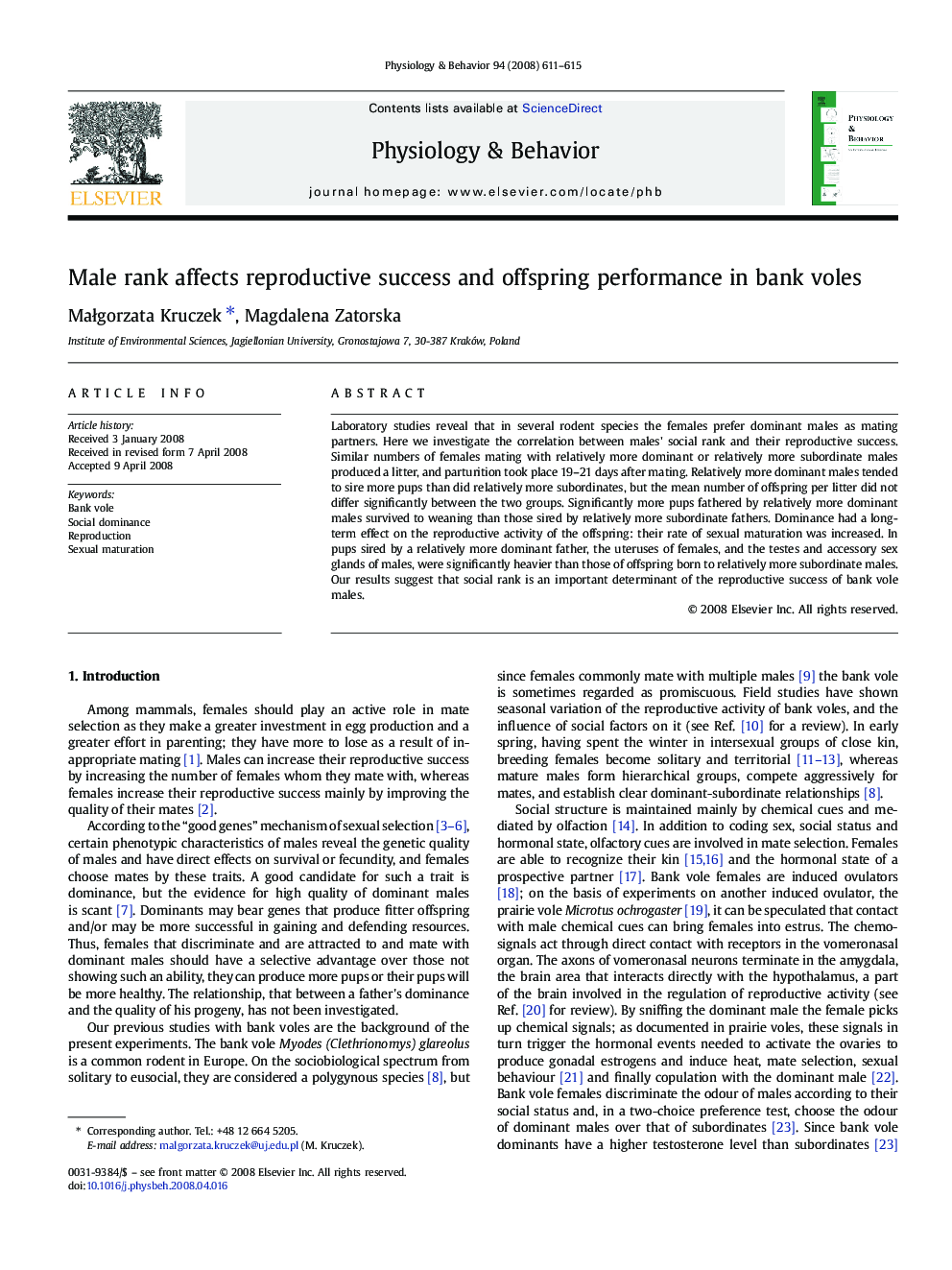| Article ID | Journal | Published Year | Pages | File Type |
|---|---|---|---|---|
| 2845286 | Physiology & Behavior | 2008 | 5 Pages |
Laboratory studies reveal that in several rodent species the females prefer dominant males as mating partners. Here we investigate the correlation between males' social rank and their reproductive success. Similar numbers of females mating with relatively more dominant or relatively more subordinate males produced a litter, and parturition took place 19–21 days after mating. Relatively more dominant males tended to sire more pups than did relatively more subordinates, but the mean number of offspring per litter did not differ significantly between the two groups. Significantly more pups fathered by relatively more dominant males survived to weaning than those sired by relatively more subordinate fathers. Dominance had a long-term effect on the reproductive activity of the offspring: their rate of sexual maturation was increased. In pups sired by a relatively more dominant father, the uteruses of females, and the testes and accessory sex glands of males, were significantly heavier than those of offspring born to relatively more subordinate males. Our results suggest that social rank is an important determinant of the reproductive success of bank vole males.
